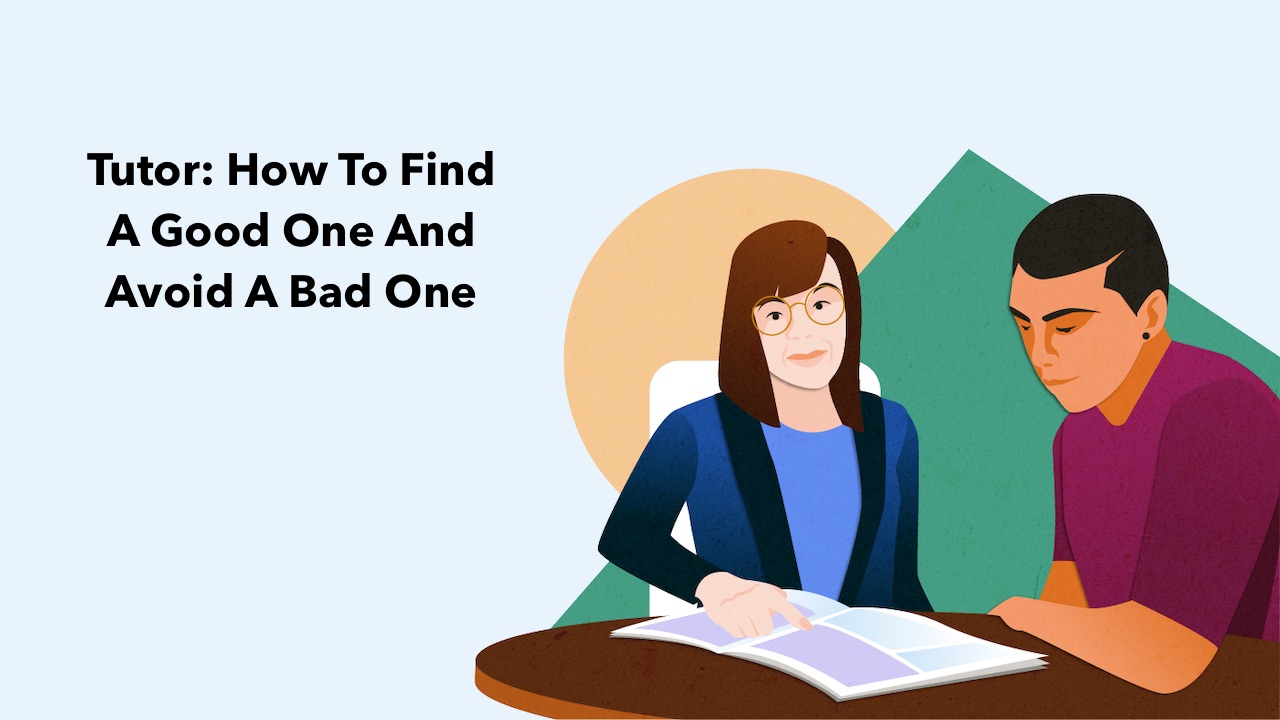Finding a tutor is a demanding task that not everyone can handle. How often people continue to work with a tutor because he is a nice person, not because he knows the subject perfectly! And if the time has come to change the tutor, then how to choose a good one and not make a mistake?
Signs of a bad tutor
You can realize that you are dealing with an incompetent tutor at the very first meeting, as well as after several sessions. You should also pay attention to which tutor you want to work with. Some tutors help students with essays and homework. Students contact the tutor, explain what their difficulty is in doing their homework, pay for essay, and after a while get a quality homework assignment done. And there are tutors with whom the student works personally and learns a subject. When choosing a second type of a tutor pay attention to the following points between the initial meeting and the signing of the contract:
- Your own comfort: If you feel uncomfortable communicating with a person, it is worth relying on your intuition. Discomfort and inability to relax will not contribute to successful learning;
- Loud promises: “all my students got 100 points in examinations,” and “you will become an exceptional student and receive a higher scholarship” – such statements do not inspire confidence and reveal the teacher’s inability to assess oneself adequately.
- Program and requirements: if the tutor refuses to change the program and knows better what each student needs, it is a reason to think twice. Individual tutoring implies an individual approach to any student.
But how can you tell whether the tutor is bad if your first meeting went well and you’ve already begun classes? The start of cooperative work does not guarantee that you will have a good tutor. His abilities, knowledge, and abilities can only be assessed after some time has passed. As a result, it’s important to evaluate a tutor’s work on a frequent basis using the following criteria:
- Lack of progress: even with a complete lack of understanding of the subject after 3-4 lessons there should already be progress. If you have studied a few lessons, but have not learned anything new, then the next classes are unlikely to suddenly be beneficial;
- Low concentration during the class: everyone met with teachers who told exciting stories from life instead of lectures. Listening to them, of course, is much more pleasant than doing organic chemistry or mathematical analysis, but there will be no sense in such studies either;
- Constant lesson rescheduling: Everyone faces unforeseen circumstances, and one-time rescheduling is not a problem. However, canceling a lesson half an hour before it starts, or rescheduling it on a regular basis without adjusting your schedule, demonstrates a lack of teacher responsibility.
- Lack of interest: the student is old enough to understand what he needs to prepare for and does not require continual monitoring or assignments. However, the tutor should be engaged in reviewing his student’s work and monitoring his progress.
- Strict approach: one student needs a visual presentation of the material, the other is better at listening to lectures, and the third is excellent at assimilating information in a playful way. If you were promised an individual approach when you first met, but they cannot adapt to your preferences in the classroom, you are unlikely to learn the subject well.
How to refuse the services of an incompetent tutor
If you are not satisfied with the quality of classes, you can always refuse the services of a tutor. To do so, simply pay for all lessons that have been finished and terminate the contract (if any). Many students and parents of schoolchildren are unsure how to politely decline the services of a tutor. Here are some easy suggestions:
Advertisement
Content in this Article
- Inform the tutor in advance of the termination so that he or she can adjust his or her schedule accordingly;
- In the last lesson, avoid arguing and speak as politely and calmly as possible.
- discuss termination in person or over the phone;
- If making a good impression is vital to you, use gentle language. You could explain that the selected teaching method is ineffective, that your financial condition has changed, that the lesson has taken all of your time, or that the subject is no longer required. Remember to appreciate the tutor for his or her efforts.
How to choose a good tutor
The main sign of a good tutor is that he will ask about your goal in learning. The phrases “learn the subject” or “prepare for the exam” do not imply any specific end result. To understand a certain topic, to absorb all the material from the first year of studying is more appropriate wording.
A skilled tutor will create an individual program based on your goals and objectives. He’ll almost certainly inquire about your schedule and how frequently you’re willing to attend classes. He or she will very certainly be able to estimate the number of classes required to achieve your objective.
If possible, choose a tutor with whom your friends have already worked. Reviews on the Internet and social networks are not always written by real clients, so a personal acquaintance will be beneficial. By the way, scientific degrees are not required for a tutor. A senior student from your faculty will likely explain the material much more clearly than the teachers.
A competent tutor will not always be pleasant and fun to talk to – he may turn out to be strict and demanding. It is important that you feel comfortable in his presence to study. And the main sign of a good tutor is your understanding of the subject, progress in knowledge, and good grades at university.

